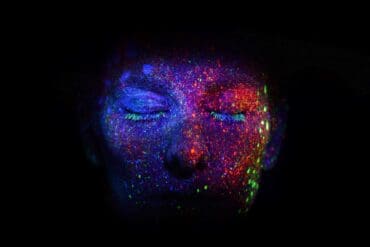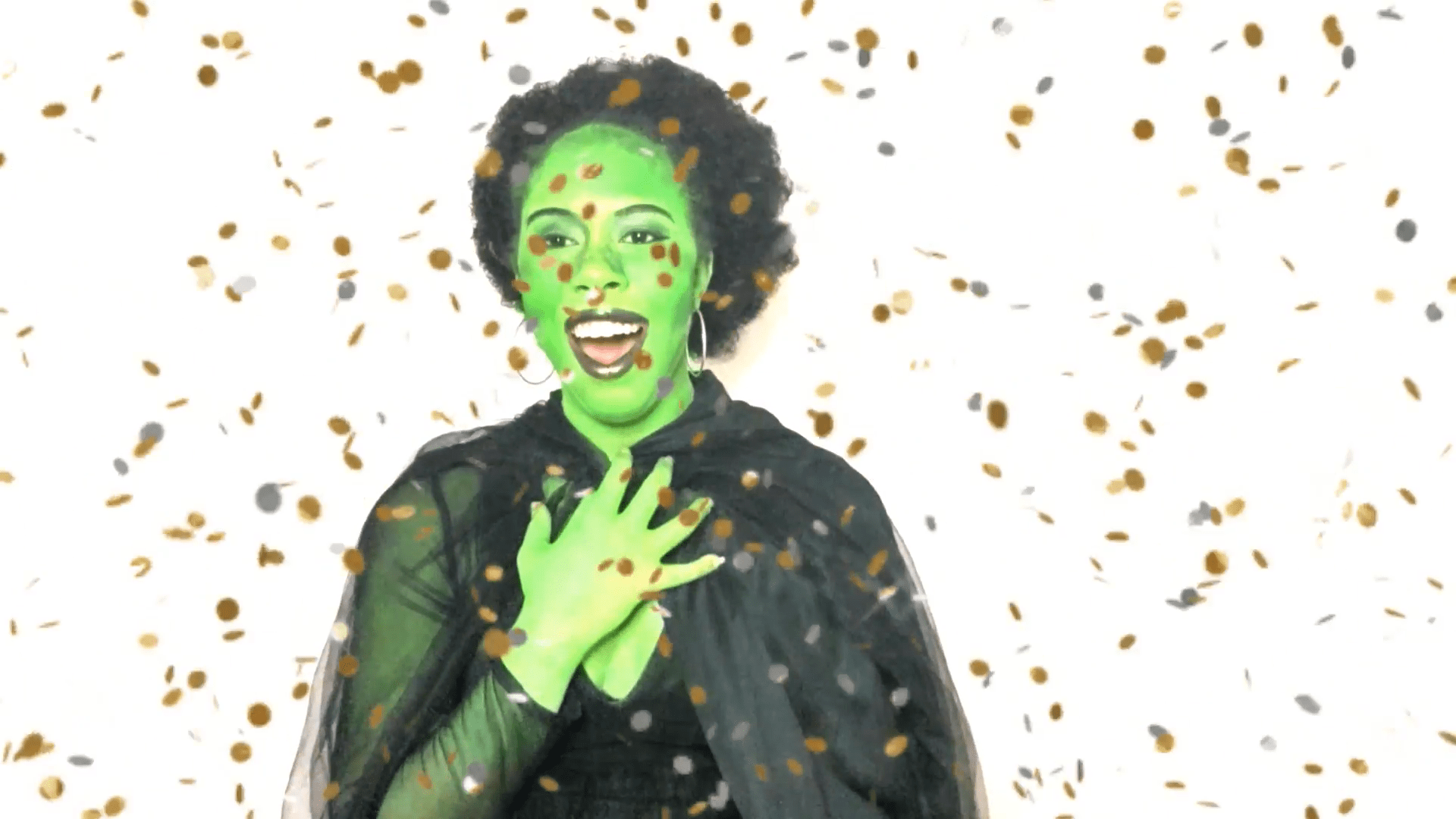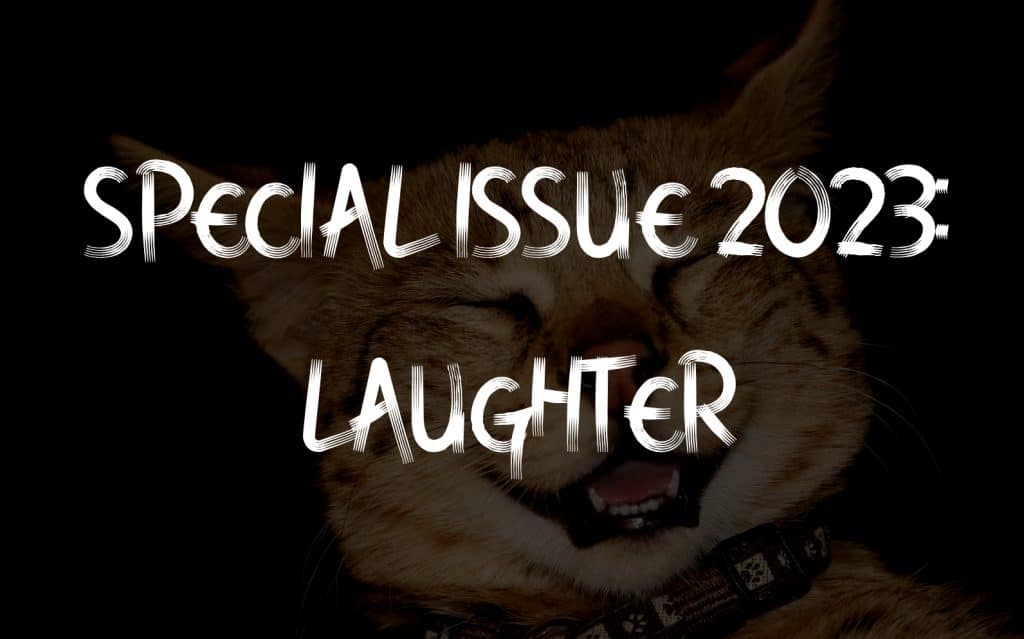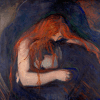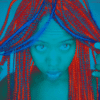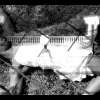The Twerking Academic: What Happens When A Witch Is Black & Beautiful?
“So, what do you like to do for fun in your free time?” This question, often meant to be casual, always inspires a secret laugh within me because I know that my answer will spiral the questioner into a place they did not anticipate. How does one casually tell another person that they love to embody different characters that they have encountered in film, TV, and literature by dressing up in elaborate costumes and parading around in public? After all, donning a costume is far from a socially acceptable practice outside the month of October or a formal stage. But what happens when a witch is black and beautiful?
Despite its lack of mainstream appeal, hundreds of cosplayers brave the streets and cons every year dressed in full character regalia innocently intent on bringing joy to themselves and anyone who also enjoys the craft and fanfare. Throughout my time as a cosplayer, I have seen that my costumed presence in public spaces inspires laughter. Merry or malicious? It matters naught.
What matters is that I, a Black woman, am out taking up space in these fantasy worlds and proudly injecting many of these characters with a dose of color. This piece is a salute to the transformational beauty and magic of cosplay and all the laughter it inspires.
When a Witch Is Black and Beautiful…and So Are Other Characters!
And here are just a few of the characters I have created beginning with Wicked’s Elphaba…
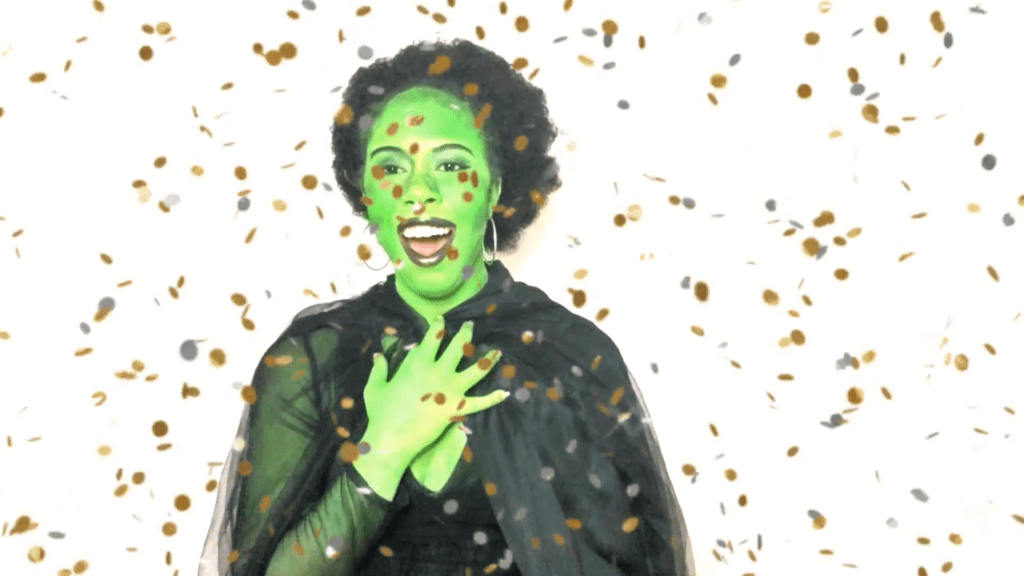
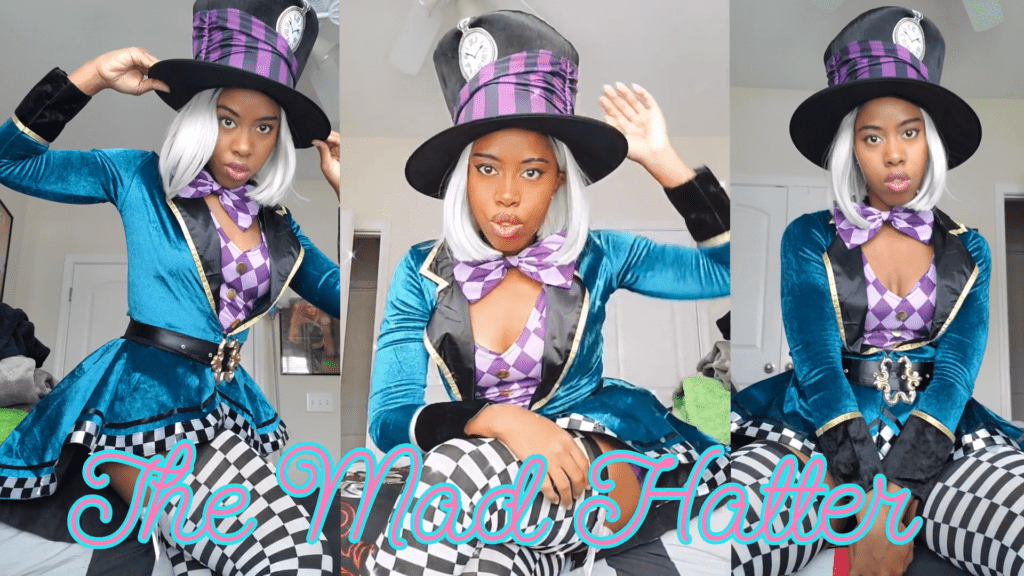


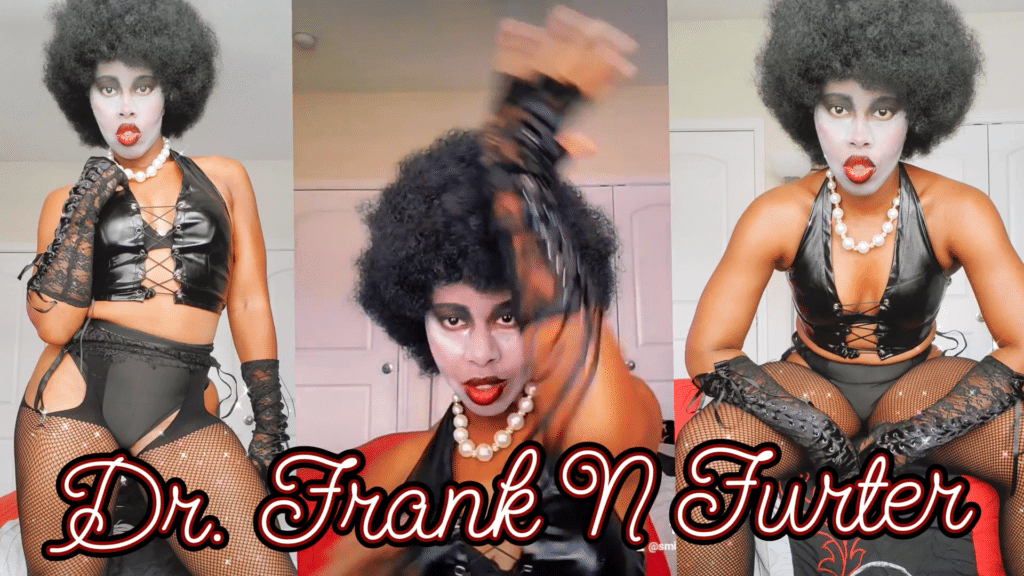
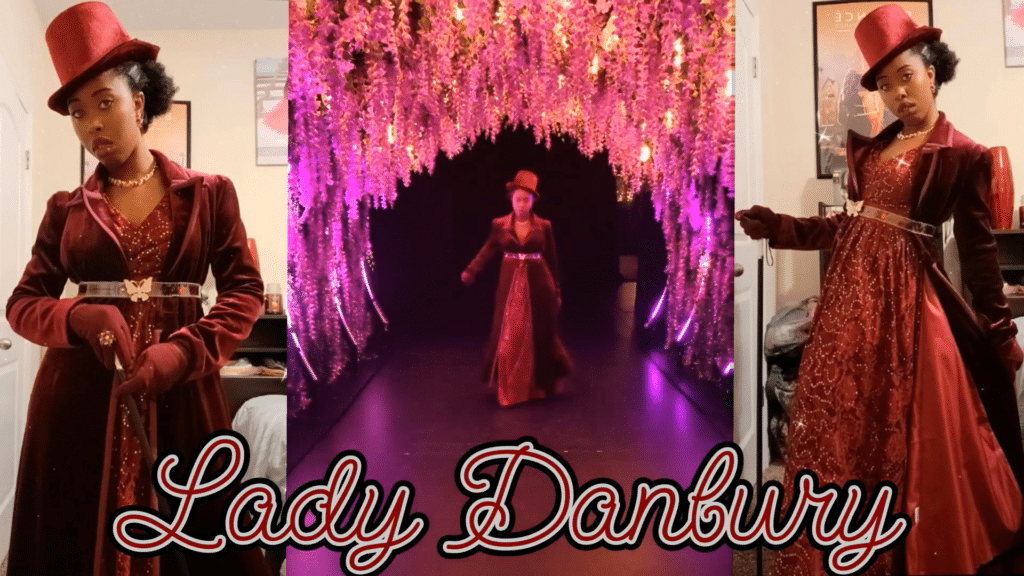
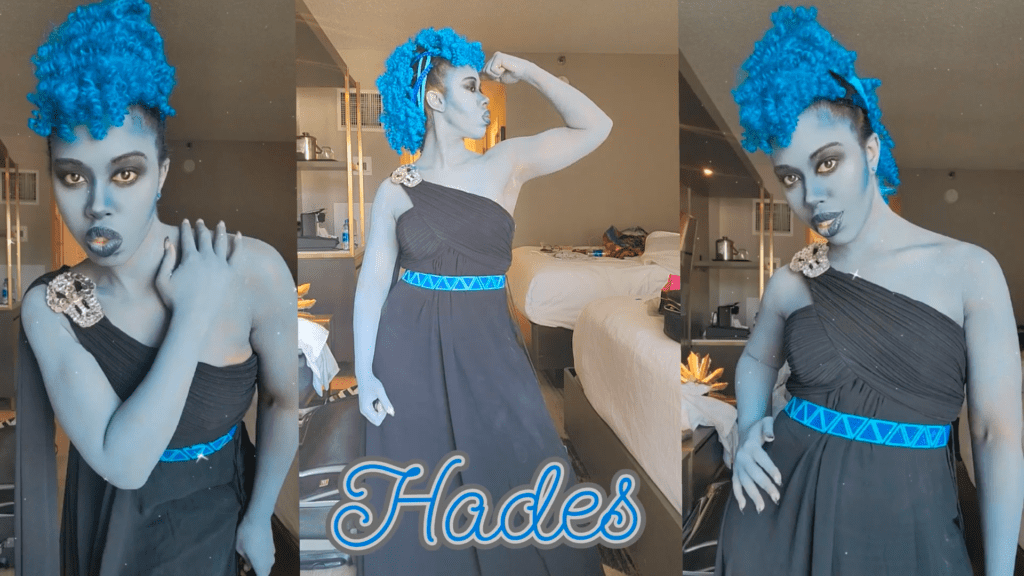
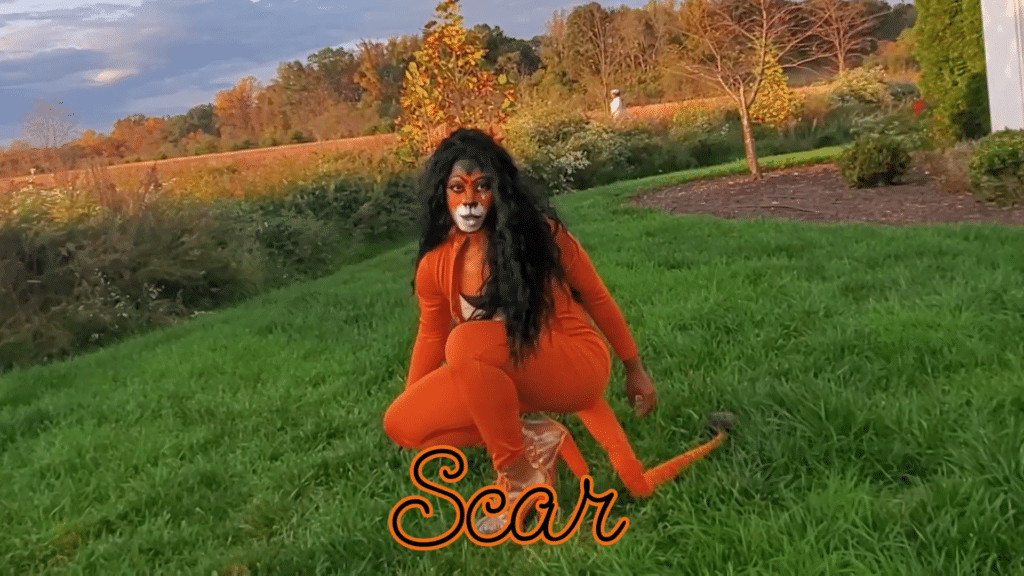
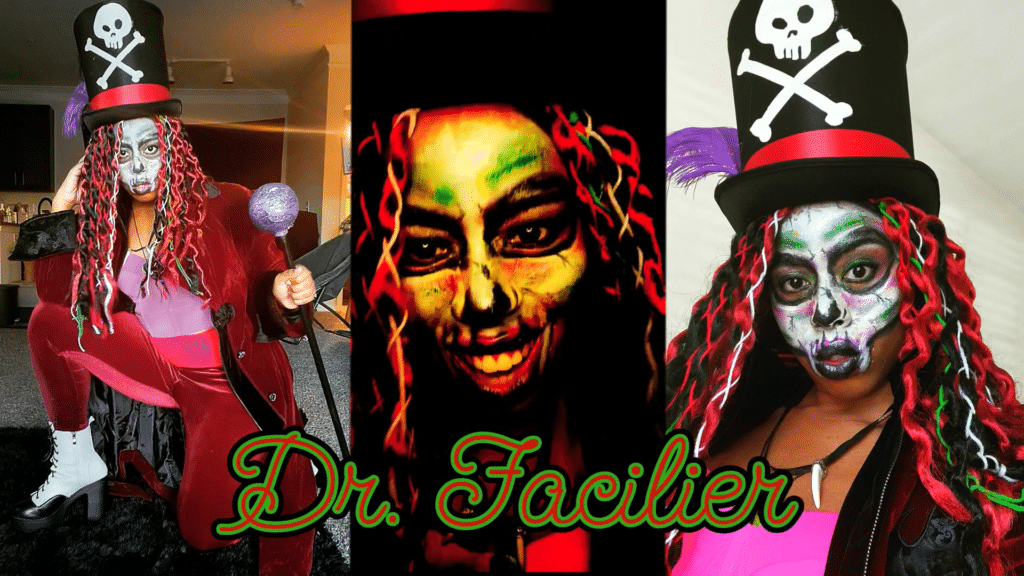


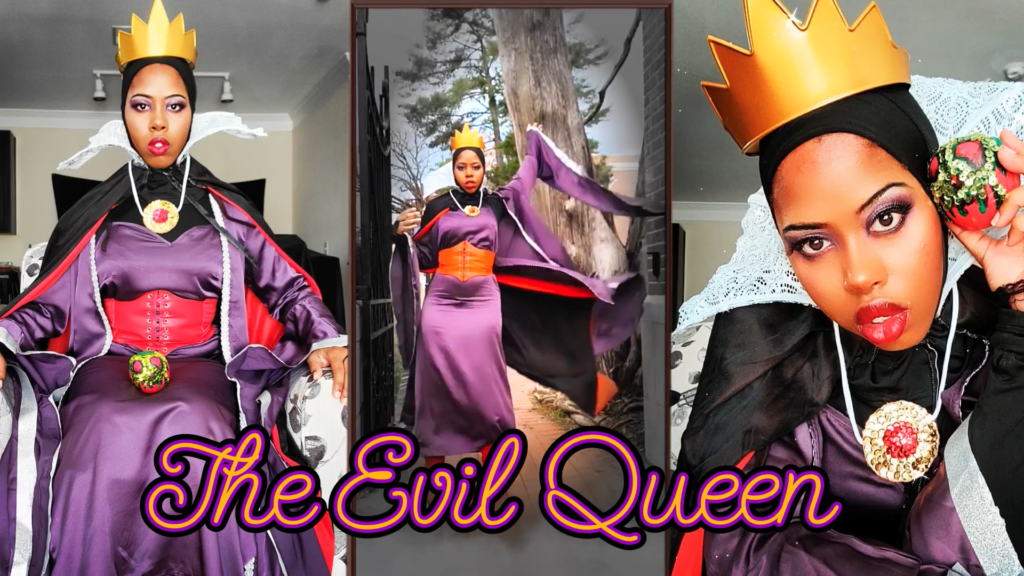
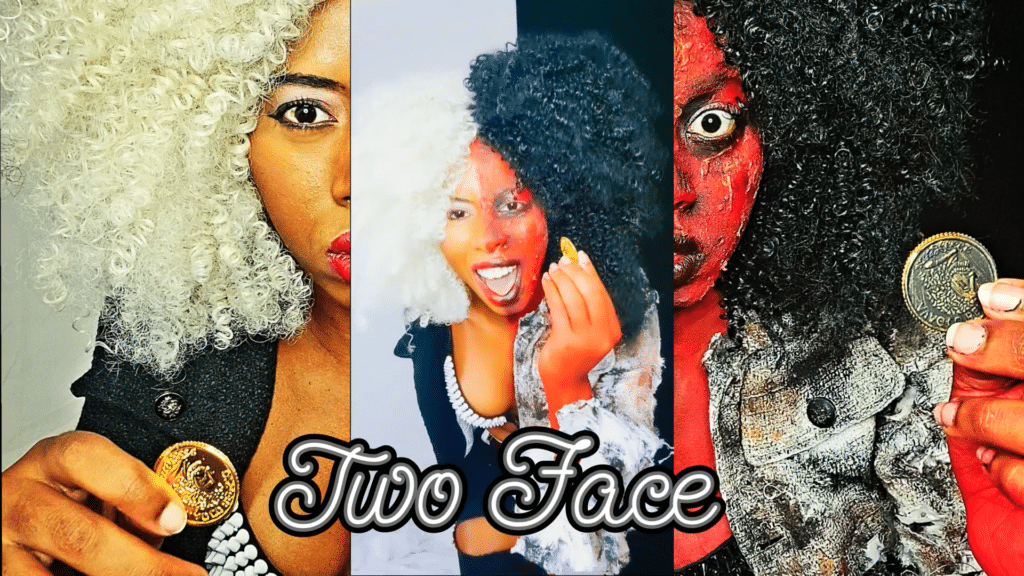
The Twerking Academic: Visual Exploration of Black Womanhood
The Twerking Academic is dedicated to exploring the multilayered lived experience of Black womanhood using multimodal autoethnographic expression. Column installments include an audiovisual piece that focuses on exploring, processing, and communicating meaningful personal experiences that also offer a voice to the experiences of the wider cultural community. Audiences can view each audiovisual piece independently. A written memo supplements each piece explaining context and speaking to significant themes within the work. Themes explored include bodily autonomy, stereotypes, mental health, and the experience of the Black female academic.
The Twerking Academic seeks to probe and question the established idea of what constitutes an academic. It examines the prescriptive, limiting rules that often dictate how one is recognized as an academic by the community. The column title itself is a nod to this goal. It prompts audiences to reexamine preconceived notions surrounding respectability politics and scholarship. In addition, engaging with topics in an inclusive manner that transcends past barriers that have separated the academic and general population is fundamental to the column’s working mission. I hope this column encourages members of the BIPOC community to build spaces that are authentically reflective of their personal style, culture, and preferred method of communication, and promote multimodal/audiovisual autoethnography as a viable investigative method.
Excerpt from 2022 video interview with Renata Ferdinand and Shanita Mitchell:
“For black women, I definitely want them to see themselves, because we don’t see ourselves often. And I want to see and show us as we’re complicated, we’re multifaceted, we’re multilayered. We’re not just the strong black woman or the angry black woman or the hypersexualized. I want the world to know. We’re complicated and face many battles which the world can’t…. They kind of know, but like, sometimes you really just have to breakdown what these battles are for them. So, I just want us to be like, “I see myself.” And then everyone else to be like, “Oh wow, OK, so this is what’s happening to black women.” Because it’s happening, and we’re here. READ/WATCH MORE
Credits
Schwartz, S. (2003). The Wizard and I (Live) [Recorded by Ariana Grande]. On Wicked (15th Anniversary Special Edition). New York, NY: Decca Broadway Compilation; UMG Recordings, Inc.
Learn More
New to autoethnography? Visit What Is Autoethnography? How Can I Learn More? to learn about autoethnographic writing and expressive arts. Interested in contributing? Then, view our editorial board’s What Do Editors Look for When Reviewing Evocative Autoethnographic Work?. Accordingly, check out our Submissions page. View Our Team in order to learn about our editorial board. Please see our Work with Us page to learn about volunteering at The AutoEthnographer. Visit Scholarships to learn about our annual student scholarship competition.
Shanita Mitchell currently serves as the Assistant Director for the Rappahannock Scholars Program at the University of Mary Washington. Since graduating from UMW with her B.A. in 2012, she has continued to pursue her passion for providing underserved and underrepresented student populations with college access opportunities and scholarships by working in and with the Office of Admissions, Financial Aid, and serving as the advisor for various multicultural and performance organizations on campus. That same passion recently led Shanita to acquire her M.A. in English from Southern New Hampshire University with the intent to expand beyond the administrative side of higher ed and into the classroom. Shanita also works as a dance instructor at The Courthouse School of Ballet and Umbiance Dance Studio. In her spare time, Shanita enjoys portrait painting, amateur photography, costuming, video editing, and advancing her study of Black feminist thought, Critical Race Theory, and autoethnography as a meaningful expression of self.





